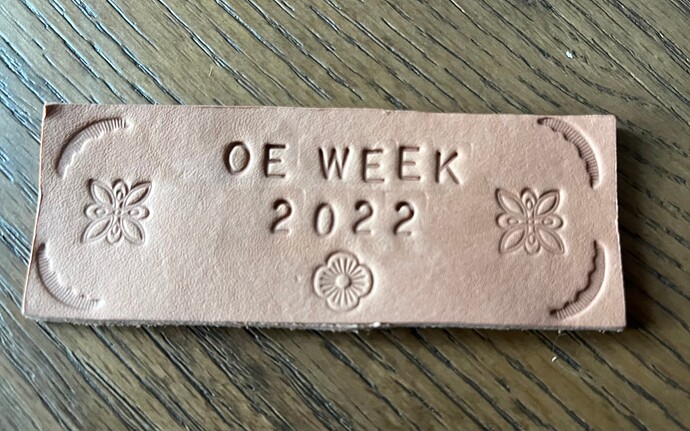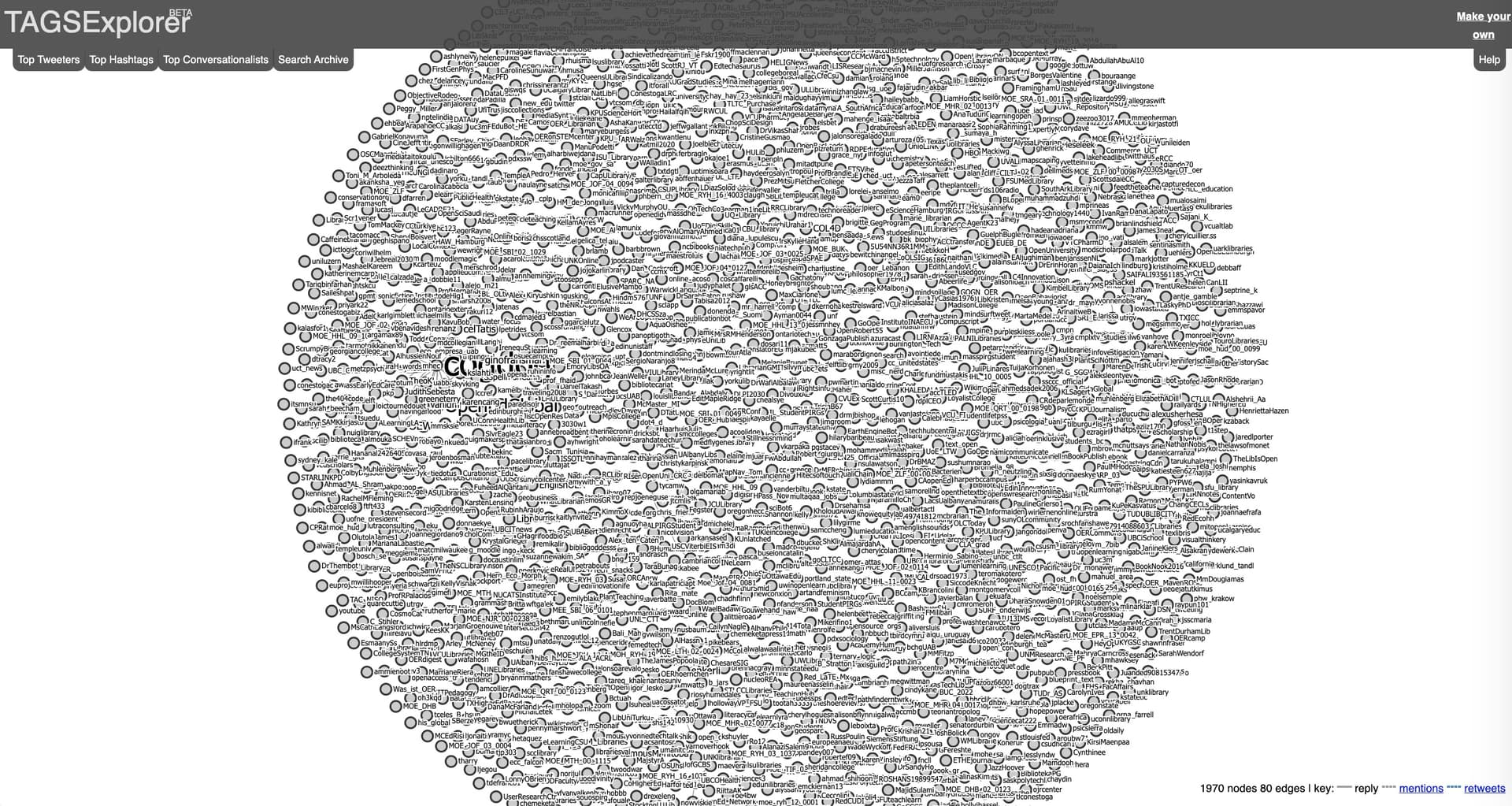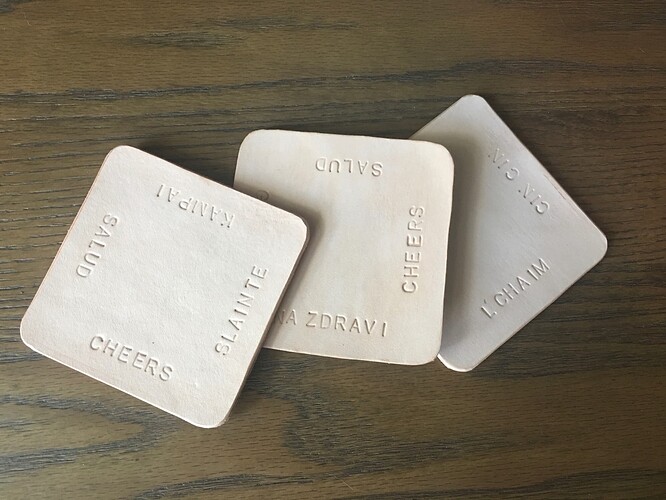Share your day five highlight, discovery, picture, key learning by replying to this post.
So much to see and do at #oeweek!
If you need a little help planning for today - check out our handy guide to Day 5.
Happy final day of #OEWeek! My exploration of OEWeek Assets has led me to discover convOERter, from RWTH Aachen University. Looking for a tool to make your Open Education work more easy? Look no further! convOERter easily converts educational resources to OER. The tool is designed to read a file, extract all images as well as all possible metadata, and substitute them with OER elements in a semi-automated manner. Thanks to Lubna Ali for submitting this asset! Read more about it here.
Sharing some highlights from the OEGVoices podcast celebrating the wonderful contributions of OEG Award winners @wfvanvalkenburg and @MelissaHighton. Sharing their answers when @marcela asked, what is next for open education that you are working towards?
@wfvanvalkenburg: Open as the default. The question is not “why make it open?” but “why make it closed?”
@MelissaHighton: Open in 3D! The expansion of open education into virtual reality and augmented reality spaces
What a week!
A quick highlight from our “OER awakening” session (in French): learning pros are already leveraging OERs without noticing.
As I was misquoting Molière, a colleague corrected me:
Par ma foi, il y a plus de quarante ans que je dis de la prose sans que j’en susse rien, et je vous suis le plus obligé du monde de m’avoir appris cela.
My faith! For more than forty years I have been speaking prose while knowing nothing of it, and I am the most obliged person in the world to you for telling me so.
Le Bourgeois gentilhomme - Wikipedia
Wish this were part of the famed CS/CR – UW-Madison French Department – Open Textbook (unizin.org)
Another highlight for me from this podcast was @MelissaHighton recounting of this weeks International Women’s Day apology to people accused of witchcraft between the 16th and 18th centuries in Scotland. The story of how this came about is one of those extraordinary stories associated with openness.
As part of a course on Data Science at the University of Edinburgh a static but real world data set from the university’s Survey of Scottish Witchcraft Database was used to geographically locate the residence location of accused witches. This data was uploaded into Wikidata, Wikipedia’s sister project, as structured, machine-readable, linked open data. Geographical information such as trial location, place of detainment and place of death locations were also added onto the accused witches’ Wikidata pages using the open source software. There were also other properties added for the accused witches including their charge and inhumane treatment. The news post Interactive witchcraft map provides more details and background about the process.
The data could then be directly queried and geographically projected onto a map. The full story and resulting map can be found on this University of Edinburgh Witches website. I highly recommend you explore the blog on that site to get the full story.
A Witches of Scotland (WoS) Campaign https://www.witchesofscotland.com/ was launched on International Women’s Day 2020 by Claire Mitchell QC and Zoe Venditozzi. The campaign has 3 aims: to obtain a pardon for those convicted as witches under the Witchcraft Act 1563, to obtain an apology for all those accused and to obtain a national memorial to remember those killed as witches.
The map of Scottish witchcraft became a useful tool in this campaign as it helped citizens learn about, imagine, and locate witches in their locale.
How wonderful then that on International Women’s Day 2022 Scottish first minister Nicola Sturgeon offered a formal apology to people accused of witchcraft between the 16th and 18th centuries helping right a terrible wrong from Scotland’s past.
Thanks @MelissaHighton for sharing this story. I like the way this initiative shows how open in education is more than open educational resources, in this example openness involves open data and open source software. I delight in the way unexpected positive social outcomes can emerge from open practices. And for me it highlights the way “open” can enable social justice.
One of my “pandemic hobbies” was leathercrafting. As we close OEWeek, I just wanted to share something I made, Texas-style, to celebrate!
That is beautiful, Judith. Your list of talents is long. What did it take, how did you learn your craft during pandemic?
For a final look at OEWeek in Twitter, we have been archiving all activity with the #OEweek hashtag using a Twitter TAGS worksheet developed by Martin Hawksey.
This tool archives all tweets that match a search criteria as a Google Spreadsheet including an archive, summary statistics, and a dashboard view of activity.
For OEWeek 2022, we recorded 4144 unique tweets.
But the most interesting feature is the dynamic TAGSExplorer which creates a visualization of the activity of all contributor, where the size of a node is proportional to their number of tweets, and lines connecting accounts indicate relationships (replies and mentions).
For an event this size, it creates a rather large ball of tweets!
How kind of you, Alan! You know, I am self-taught, and my leather goods probably suffer for it, lol. That one is a little rough as I made it quickly and didn’t finish the edges, but here is my favorite things I have made: global coasters! ![]() (@igorlesko should recognize the toast at the bottom of the middle coaster.)
(@igorlesko should recognize the toast at the bottom of the middle coaster.)
Thanks a lot, @JudithSebesta for recommending convOERter! ![]()
You are welcome! Happy to recommend. ![]()


